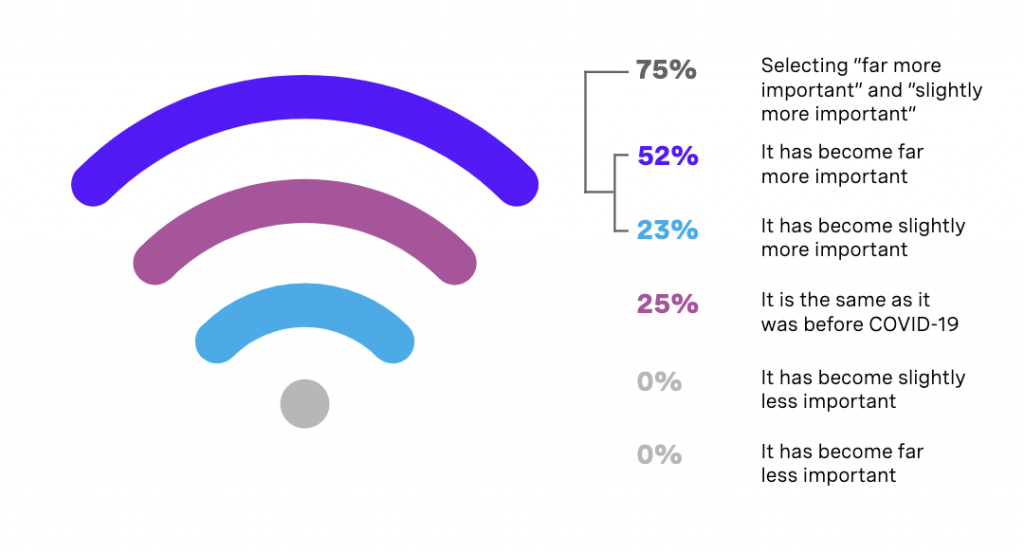How COVID 19 increased our reliance on technology & impacted IT departments
As the world faced an unprecedented pandemic, lockdowns became part of day-to-day life. Thankfully, when the need arose, we had the technology to move the workforce online.
How the pandemic changed the way we work
Companies had to change their ways of working overnight and undergo business transformation. With 37% of the UK workforce on average working from home (WFH) in 2020, technology professionals’ skills were in higher demand than ever before.
The rise of the hybrid & remote work business model
Businesses across UK and Europe had to move into a space they hadn’t previously occupied. To cope with remote working, they adapted and hired new talent, updated and upgraded systems – moving from office-based working to working from home. Senior technology decision-makers faced new challenges, regarding their department’s role and how to attract, retain and motivate their workforce during COVID-19, and then through the Great Resignation. Post pandemic, it seems remote and hybrid working are here to stay long- term. Want to search for a new role that offers hybrid or remote working? Check out the list of opportunities we have available here.
IT departments & the impact of technology during the pandemic
During the COVID-19 pandemic, many organisations had to adapt to lockdowns and increased government restrictions. It caused a significant overhaul of business operations, with companies upgrading their systems accordingly. Business decision-makers told us that technological innovation and investment have increased, with faster digitisation and cloud migration two notable outcomes.
Respondents to our CTO survey on ‘Has COVID-19 changed the role and importance of the IT department?’

This dependence on technology has raised the profile of IT departments in businesses. Two years on from 2020, 75% of senior technology decision-makers say the IT department has become more important to their business – and nobody says it’s less important. Similarly, over three quarters (76%) said awareness of the IT or technology department has grown since COVID-19 and 66% said that it has become more respected.
Increased reliance on digital technology, for both home working and collaborative tools, were mentioned as key reasons why awareness and respect for the IT department has increased.
Expectations increased, especially for more scalable solutions, with virtual collaboration becoming the ‘new normal’.
The varied effects of working from home or the office
Working from home has transformed office working. Whereas previously a business was based in several centralised locations, now it’s moved into individual offices in employees’ homes.
Businesses want to increase operational efficiency and productivity. The IT department has been a critical enabler of this, with only 20% saying their department faced more criticism during the pandemic.
How has the pandemic increased pressure on IT departments?
With greater demand placed on IT departments, stress has increased for employees – 82% (excluding DK) of technology decision-makers said the IT department has been under more pressure during the pandemic.
Despite benefits provided by working remotely – more flexibility and greater collaboration across global teams were named as two main gains – the increased workload and stress have impacted employees, with some IT departments expected to work 24/7.
Summary
The pandemic, which caused workforces to move online overnight, has created permanent changes to industry. The hybrid and remote working business models are here to stay, and the importance of IT professionals has never been more appreciated. Digitalisation has occurred more rapidly in the last couple of years, than ever before, this rate of digital transformation is likely to be continued in the years to come.
Download our full report here for a more detailed insight into technology and the future of work post-pandemic!
Are you ready to remove the pressures of recruiting and secure top talent faster? Find out more here.










